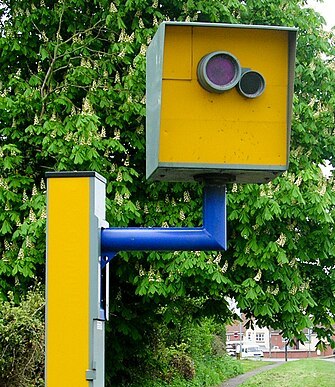
Last time, we finished our post on five types of UK speed camera and how they work with this old and thorny question: are speed cameras a vital part of our road safety measures? Or are they, as some motorists suspect, primarily there to gather revenue for the government/local authorities/police forces?
In this two-part post, we’ll do our best to give you an unbiased take.
Off we go (but not too fast!)
The UK public’s view
What does the public make of speed cameras? Here are some results from widely cited surveys:
- A 2017 study* found that scepticism about the value of cameras has declined over time.
- For example, 29% of people believe there are too many speed cameras, which was down from 47% in 2008. In addition, 60% of respondents said speed cameras save lives – up from 42% in 2005.
- However, the same survey found that 42% believed speed cameras are mostly there to make money (down from 58% in 2004).
- There are big regional variations in how acceptable people find cameras. For example, a 2015 study* found 69% approval for speed cameras, whereas in Wales, it was about 78%.
- That same study found widespread scepticism about the placing of speed cameras, with less than 40% believing they are only sited at places where accidents are happening.
*Yes, we know that these surveys are now 8-10 years behind the times, but they’re the ones that keep cropping up in our research.
So, as far as the general public are concerned, speed cameras are not an either/or thing. Yes, there’s the perception that they help with road safety, but many also think that they’re used to generate money, and they’re intensely sceptical of the idea that they’re only placed at potential accident sites.
That’s the view of the people, then. However, without getting all elitist, just because something is commonly believed doesn’t make it true. After all, one in six people think the moon landings were faked.
Let’s look at what the stats say.
Road safety has improved since cameras came in, but…
On the surface, it looks straightforward enough to prove whether speed cameras improve road safety. What you have to do is:
- Look at the number of collisions before speed cameras are brought in.
- Look at the number of collisions after speed cameras are brought in
- Compare the two.
When we do this, the stats are pretty dramatic. If we compare 1990 (the year before speed cameras were introduced into the UK) with 2019, deaths from traffic collisions fell by two-thirds, and serious injuries fell by over a half.
That might sound conclusive, but here’s the problem: plenty of other things have changed in that 27-year period. Most obviously, cars became way safer. There were also changes in driver education and the amount of drink-driving. Also, the proportion of young drivers on our roads dropped. And so on.
Critics of speed cameras say that it’s these factors, rather than speed cameras, that have reduced harm from accidents. They’re also keen on minimising the role of speed in accidents.
Can researchers solve the speed camera question?
Traffic researchers’ bread and butter is tackling questions like this. With some expertise in data-gathering and stats, it’s possible to tease out what effect speed cameras by themselves have achieved.
Taking everything into account, some of their conclusions are:
- Overall, speed cameras reduce collisions by 19% and serious or fatal road collisions by 21%.
- From 1992 to 2016, speed cameras reduced accidents by between 17 to 39 per cent and fatalities by between 58 to 68 per cent within 500 metres of the cameras [our emphasis].
- However, there is a slight ‘kangaroo effect’ outside this zone where collisions tend to increase, but not enough to offset the overall reduction.
These sorts of finding are not without controversy, but they’re probably the closest we will get to a definitive answer.
All types of speed reduction work
Some research has also found “all types of speed management scheme have remarkably similar effects on accidents.” In other words, there’s nothing particularly magical about cameras versus other methods. The same researchers reported that ‘road engineering’ such as speed bumps offer the greatest reductions in injury.
OK, but what about the cash-grab claim?
Are far as we can tell, speed cameras do reduce serious and fatal collisions. They work about as well as other speed reduction measures. What about the other claim – that they’re put up as a revenue generating scheme? Remember, the public doesn’t see this as an either/or.
That’s what we’ll look at next time.
The WVS blog covers all sorts of motoring issues, from light hearted to contentious. If you’re in South Wales, and you need your car serviced, repaired or MOTed, we’ll be here to give you a main dealer level of care at affordable prices. To book your vehicle in, or for any enquiries, get in touch. We specialise in VW Group marques like Volkswagen, Skoda, SEAT and Audi, but we’ve got shedloads of experience with other cars too.
